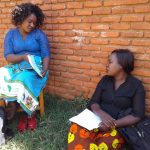In family planning, the provision of services is often a bidirectional process; clients have preferences for the contraceptives that they want, while providers seek to guide clients to achieve those preferences. This describes the urban Malawi setting, where family planning counselling usually involves group counselling followed by individual counselling. As part of this process, counsellors […]
The Gap between Technology Awareness and Adoption in Sub-Saharan Africa
This paper has been prepared as an output of the Developing Smart Innovations through Research in Agriculture (DeSIRA) project in Malawi.
Policy brief: Achieving Sustainable Agricultural Practices
Sustainable agricultural practices enable more efficient use of natural resources, mitigate the impact of agriculture on the environment, and strengthen capacity for adaptation to climate change and climate variability. Because these practices usually require substantial effort or resource allocation from farmers, incentives are necessary to support farmer adoption. Despite growing interest, there has been little […]
Journal Article: Food loss and waste: Evidence for effective policies
This edited volume brings together effective measurement, methodologies, and determinants of food loss & waste (FLW), and more. Authors: Andrea Cattaneo, ED., Marco V. Sanchez, ED., Maximo Torero, ED,. and Rob Vos, ED.
How can AfCFTA Implementation Change African Agricultural and Food Trade?
Virtual event: How can AfCFTA implementation change African agricultural and food trade?
Date: February 24, 2021
Time: 16:00 EAT / 13:00 UTC
- « Previous Page
- 1
- …
- 77
- 78
- 79
- 80
- 81
- …
- 91
- Next Page »





